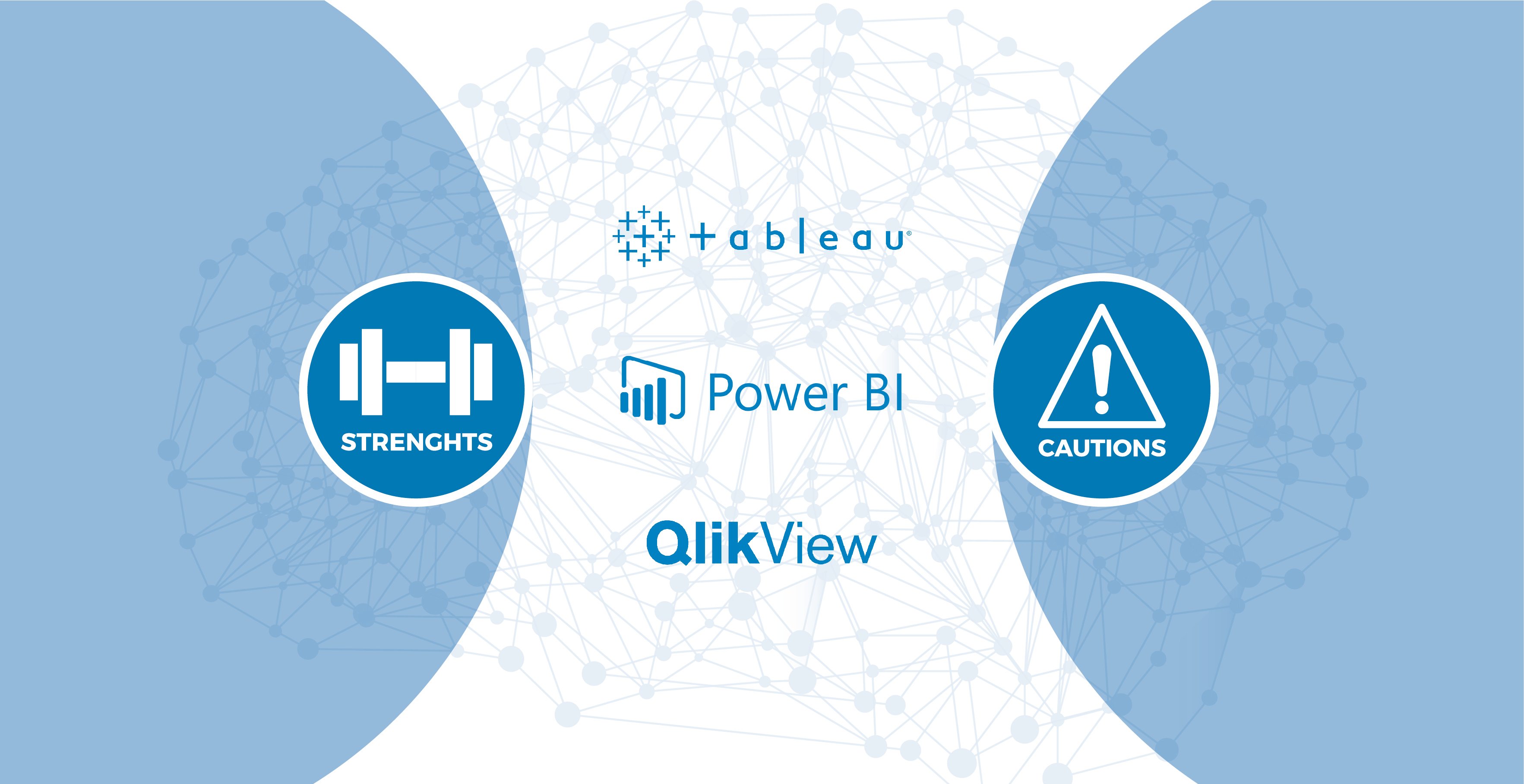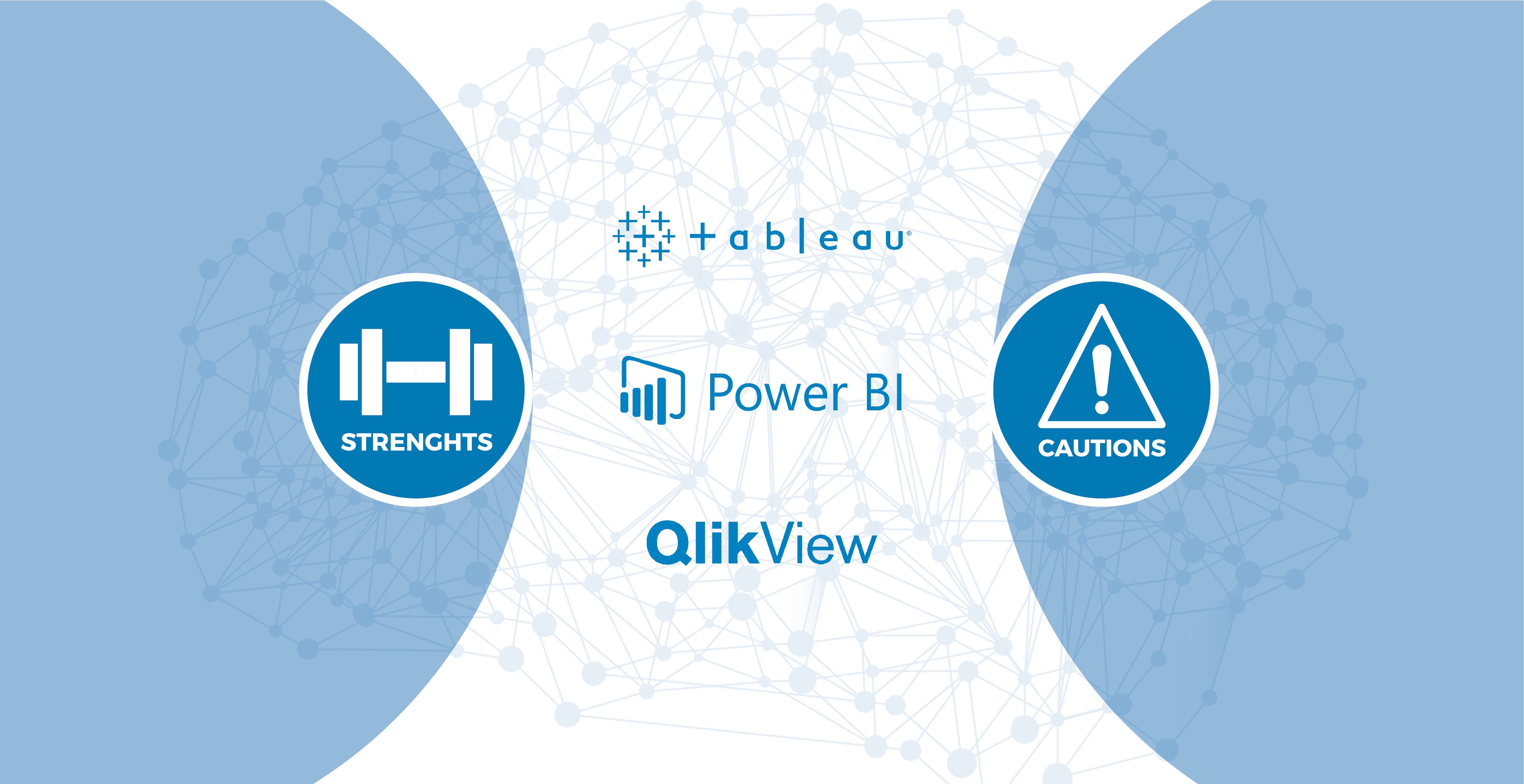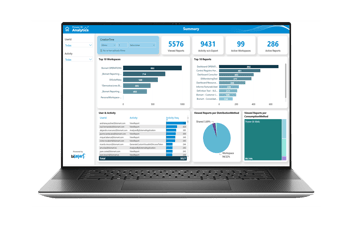Analytics and BI in companies is unstoppable. The nº of analytics experts and data consumers is growing at a higher rate than resources in IT departments.
The rising of analytics and business intelligence adoption in companies is unstoppable, the number of analytics experts and data consumers is growing in a higher rate than resources in IT departments. So, analytics is evolving to a more user-friendly mode, using automation, natural language or voice processing; and to a most wide range of features including augmented analytics with ML-enabled, augmented alerting and anomaly detections being the new trends in the market.

Many companies are willing to cover this need, and these are the three that do it better with its strengths and cautions:
Microsoft – Power BI
- Strengths:
- Low license cost
- Good Sales experience
- Ease of use for complex types of analysis
- Powerful visuals
- Robust user community
- Supports complex data models with integrated advanced analytics
- Comprehensive product vision: integration of all capabilities (augmented analytics, new AutoML features, Azure cognitive services, support for existing Reporting Services reports…)
- Cautions:
- Cloud only in Azure
- Power BI Report Server enables users to share reports (not dashboards) and lacks some of the ML capabilities found in Power BI SaaS
- Agile self-service analytics (Power BI) today is a different product than Scheduled-distributed reporting (Reporting Services) but they will be one in a short-term roadmap.
- Some of the scale-up options require multiple products; for example, advanced conversational analytics require Cortana.
Tableau
- Strengths:
- Easy visual exploration and data manipulation while visualizing
- Customers are fans
- The company is growing in terms of revenue
- Cautions:
- Product gaps: Support for querying multiple fact tables and complex schemas in a single data source is absent from Tableau’s product. It does not support scheduled, bursted reports in a variety of output formats.
- The quality of support is declining, the upgrading difficulty is raising.
- Bad sales experience: expensive prices and lack of flexibility in contracts.
- Agile self-service analytics (Power BI) today is a different product than Scheduled-distributed reporting (Reporting Services) but they will be one in a short-term roadmap.
- Data scale-up options require multiple products; for example, advanced conversational analytics require Cortana.
Qlik – Qlik Sense
- Strengths:
- Product features and extensibility: augmented features as Cognitive Engine, Insight Advisor that help users find useful insights faster, automatic chart generation, …
- Active user community
- Product vision: extends and enhances its platform as the market evolves
- Cautions:
- QlikView and Qlik Sense require multiple products to complete the offering (Qlik Data Catalyst, Qlik Nprinting, …)
- Bad migration experiences and a support service below average
- Slight decline in interest in Qlik.
Source: Magic Quadrant for Analytics and Business Intelligence Platforms. Published 11 February 2019 - ID G00354763 -By Analysts Cindi Howson, James Richardson, Rita Sallam, Austin Kronz...



